Poti - the 'poor rich' city of Georgia
Residents of Poti complain of poverty and unemployment
Poti is the city with the largest port in Georgia. From its own income, it can replenish the central budget of the country and live self-sufficiently.
However, self-government in Georgia is arranged in such a way that today the city’s revenues go almost entirely to the central budget.
Poti residents complain of poverty and unemployment. In the main port city of the country, the sewerage system is faulty, the roads are in poor condition, and due to the lack of storm drains, the city gets flooded after each rain. Poti suffocates from the smell of fish, residents suffer from mosquitoes and air polluted by heavy metals.
‘Swamp-city’
An unusual city layout for Georgia city layout – with strictly perpendicular and parallel streets, symmetrical neighborhoods, houses of the same size, and green courtyards it is best observed from above, for example, if you film it from a drone.
Poti with a population of just over 40,000 people is probably the only city in Georgia where urban chaos is not felt.
“This is a Parisian plan”, the Poti residents say proudly when asked about this symmetry.
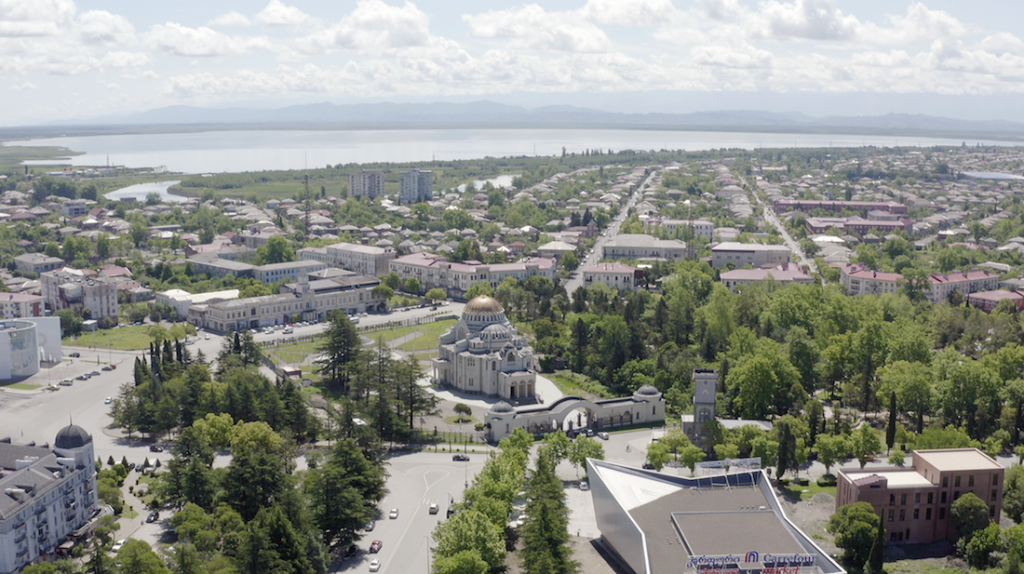
In the center of Poti, near the port, there is a small green park with arched pedestrian bridges.
In the shade, on a wooden bench, two elderly people are sitting – a man in plaid trousers, completely gray-haired, and a woman in classic black trousers and sneakers, they speak in Russian and Georgian.
“Yura Shilovitsky”, the man introduces himself. He says that his whole life, starting from childhood, was connected with the port of Poti.
“The history of Poti starts from the port. What you see here, these buildings are the residential buildings of the port. This city was built together with the port and for the port … The football team of Poti, Kolkheti, also belonged to the port”, he says.
- Anaklia: Georgia’s forgotten Black Sea resort
- The future of Georgia Project: Georgia’s unfinished search for its place in Europe
- ‘A [Georgian] separation’: female emigrants on work, motherhood and family
Poti is located on the Black Sea coast, in the Colchis lowland in western Georgia, in the Samegrelo-Zemo Svaneti region.
In addition to the sea, the Rioni River flows in the city, and it also borders on two large lakes – Paliastomi and Okros Tba (“Golden Lake”).
The history of Poti began even before our era, from the legendary city of Phasis in the 7th-6th centuries. Phasis was founded by Greek colonists. As the ancient Greek historian Strabo writes, at that time 60 tribes lived here, all speaking different languages.
Poti acquired its modern significance in 1858 when it was declared a port city.
The ceremony was attended by the French writer Alexandre Dumas, who later described this event in his book “The Caucasus”.
In Dumas’ words, Poti consisted of a few houses on wooden piles, surrounded by swamps, with mud and mosquitoes. Malaria was widespread here and, as Dumas wrote, it was “a pig’s paradise”.
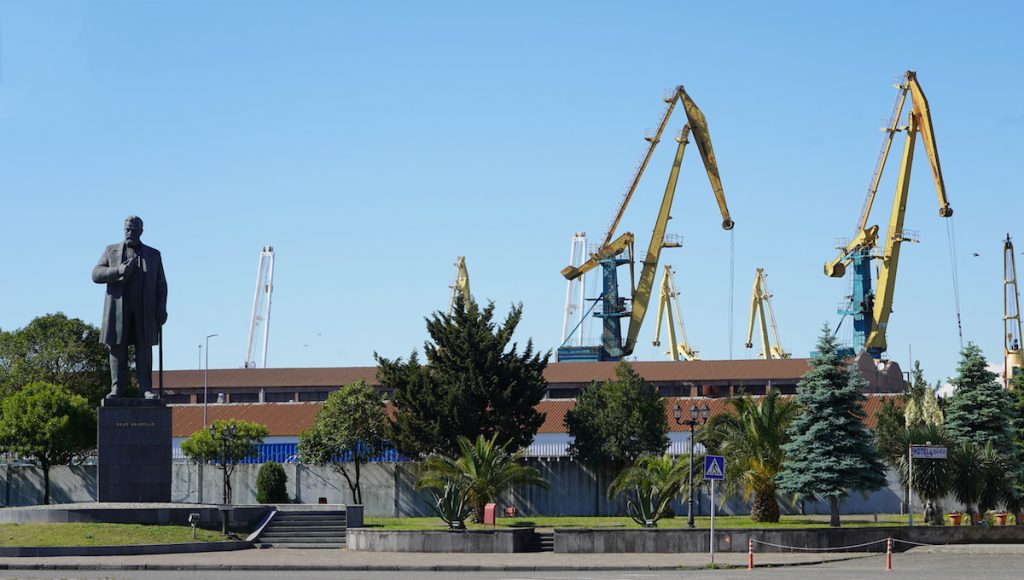
Four decades later, in 1894, the famous Georgian public figure Niko Nikoladze was appointed the head of the city. The emergence of Poti as a city – with a symmetrical layout, cobbled streets, bridges, neat houses – is associated with the name of Nikoladze.
Nikoladze brought the German architect Edmund Frick to Poti and instructed him to design the city. The buildings he created are still preserved in Poti. These are about 70 buildings that now have the status of cultural heritage.
The name of Niko Nikoladze is also associated with a significant expansion of the port of Poti and the construction of the first railway in the Caucasus, the Tbilisi-Poti railway in 1867-1874.
Today the seaport of Poti, the largest port in Georgia, has 15 berths, the length of which is 29 kilometers. More than 20 port cranes operate on this territory; a 17-kilometer railway line runs through the port.
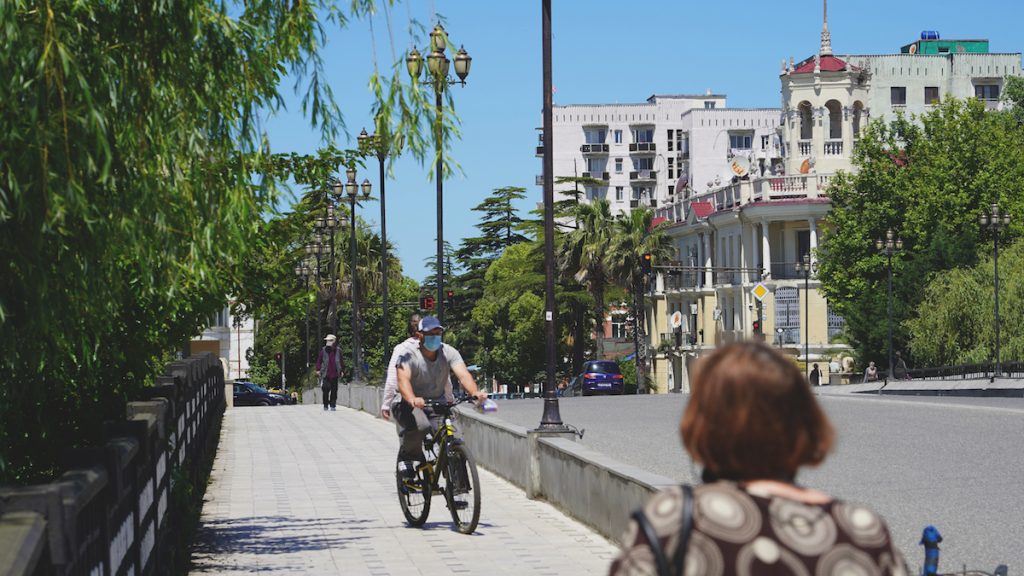
Poti of the 21st century and lost profits
Poti residents say that the city’s development has stopped for years, and the reason for this is the lack of real self-government in Georgia. The center does not allocate funds for the development of the city.
Here people remember the old days – at one time the revival of Poti began with the establishment of the so-called. The “pood tax”, which was also initiated by Niko Nikoladze.
The “pood tax” meant that from each pood of goods exported from the port of Poti, the local budget received half of the penny. Thanks to this concept, in 1894, Niko Nikoladze increased the budget of Poti from 75,000 to 723,000 rubles and the swampy village, in 10 years, turned into a city of the European type.
According to the fiscal policy in force in the country today, since 2007, only the land tax and property tax, as well as local fees collected from various fines, remain in the budgets of municipalities. Income tax goes to the central budget and is later returned to the regions in the form of transfers.
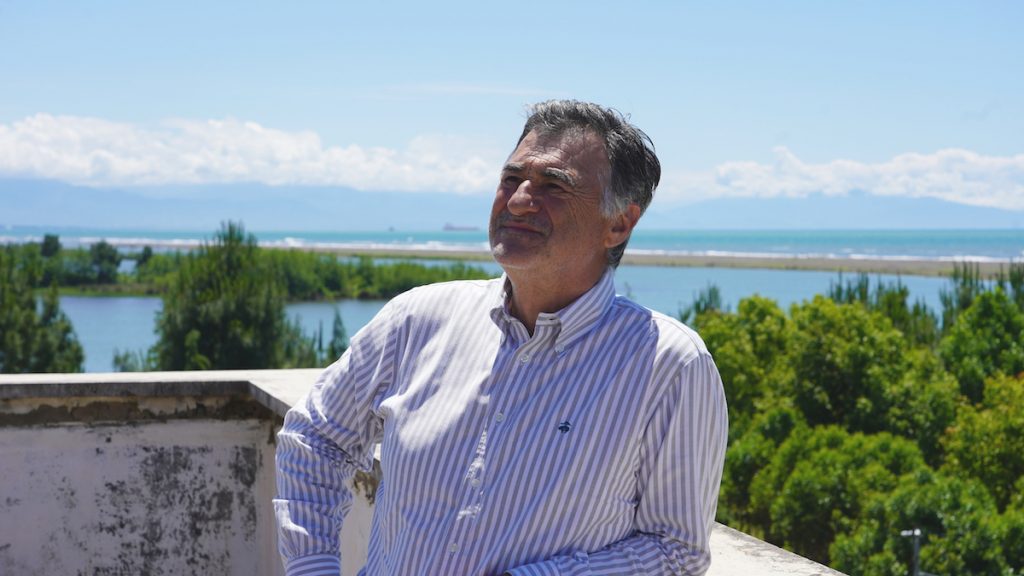
“In fact, 90% of Poti’s income goes to the central budget”, says Vakhtang Alania, the former mayor of Poti.
Poti’s budget for 2021 is 20,792,000 lari [about $6.6 million]. Of these, 14,532 million are funds received from taxes. As a targeted transfer, Poti will receive about 5.9 million lari [about $1.8 million] from the central budget this year.
The balance from the previous year is added to these funds and in general, the city’s budget is up to 32 million lari [about $ 10 million], the press service of the city mayor’s office explained to us.
“I asked the Revenue Service for information about the funds that Poti contributed to the central budget, and it turned out that it was 48 million lari [about $ 15.2 million] in 2020”, says journalist and activist Eliso Janashia.
According to the European self-government standard, at least 15% of that 48 million must remain in region, says Irakli Melashvili, a self-government expert:
“To this should be added the lost tax on property, which is also a problem in Georgia, since the property is either undervalued or still does not belong to the municipality”.
In 2001, the then Poti City Council transferred 380 hectares to the port, thereby damaging the local budget by hundreds of millions of lari, Vakhtang Alania recalls:
“A free industrial zone has been created on this land, but, firstly, it has not received proper development, and secondly, like from the port, the income from industry in this area is distributed according to the same principle – the majority goes to the central budget”.
Melashvili states that, for the example, of the 380 hectares, which were later sold for 155 million US dollars, Poti lost a third of the whole amount (when the government sells property in the municipality, the local government has the right to demand 30% of the total amount), which is almost equivalent to the budget of Poti for eight years.
“Now count it – with just one operation the city lost its budget for several years, it does not have income tax and taxes on property are only partially paid. These are the simplest examples of how the city loses tens of millions every year ”.
“Poti is the gateway to the region, Armenia and Azerbaijan carry out trade through the port of Poti, and nevertheless, we need to figure out how to subsidize this city, and its budget was only $6.5 million”, Melashvili said.
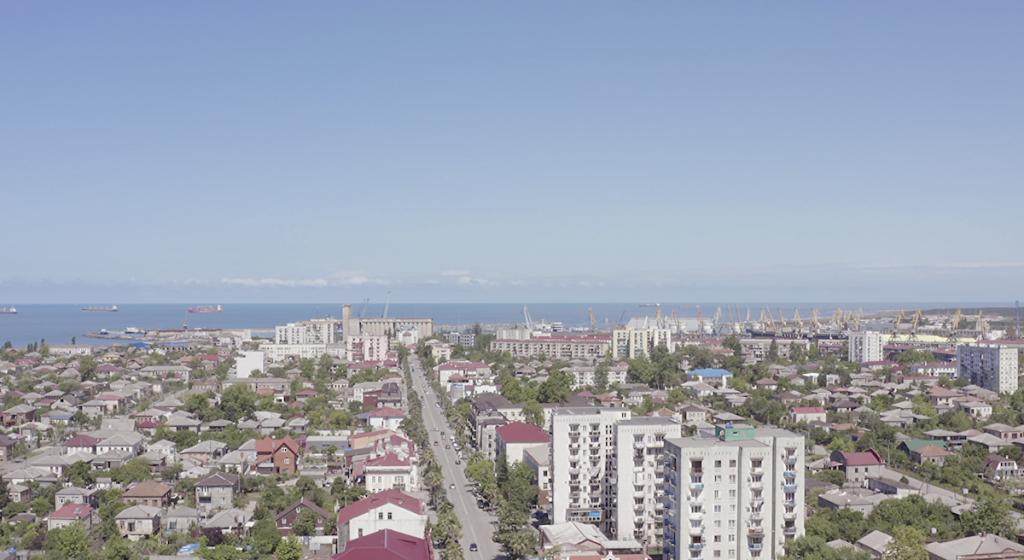
Port cities in other countries are among the most economically developed, such as Hamburg or Amsterdam, says another self-government expert, Kote Kandelaki, chairman of the International Center for Civic Culture. In turn, Poti, among the port cities of the world, is distinguished by its poverty:
“This city once developed as a port and was supposed to be one of the richest. But, unfortunately, this problem has existed since Soviet times – dependence on the center and meager transfers that leave the city with nothing. Currently, we know that Poti has many problems, ranging from ecology to infrastructure”.
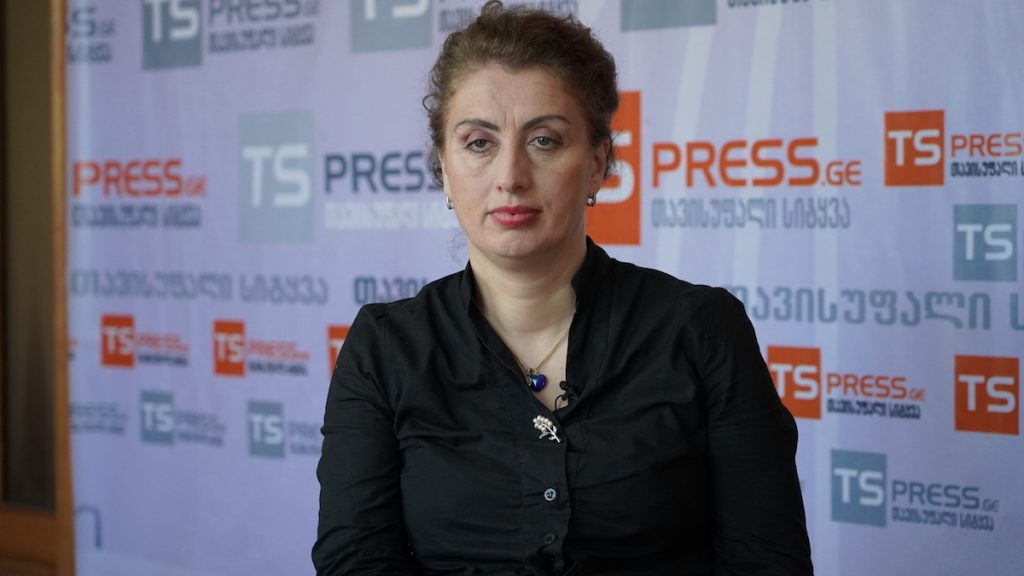
“This is a very unfair policy”, says Eliso Janashia. “Poti residents create wealth in their city, they want to make it better, and the money goes to the central budget. Now the port exists separately, and the city is separate. Economic activity is dying”.
Kote Kandelaki also considers such a redistribution of the budget to be unfair and says that such a policy causes a subsequent chain of problems and depopulation of regions:
“This attitude kills the city’s motivation to invest in economic development. First, it has no resources (property), and second, it has no incentive. That is why now if you ask any ordinary Poti resident who does not work what he would prefer, he will tell you that he would prefer to close these enterprises and live in a clean city”.
Some townspeople also speak about it.
“I have lived in Poti for 30 years, but I have never been able to get a job in the port. You need to have a relative, a cousin ‘upstairs’ so that you can even be hired as a worker who will work with a shovel”, says Gocha Tsatsua, who now works at one of the factories in Poti and receives a salary of 400 lari [about $ 130] a month.
Why Poti can’t survive on tourism
We arrived in Poti in the second half of June but you can’t tell from the city that it is preparing for the tourist season. There is practically no tourist infrastructure – there are no summer cafes and bars, there are no long rows of hung multi-colored rubber inflatable rings and mattresses, as in other seaside cities.
There are no vacationers either.
However, according to tourism experts, the port city has great tourism potential – it has a humid and warm maritime climate, magnetic sand, lakes, rivers, the unique nature of the Colchis Lowland, and cultural heritage.
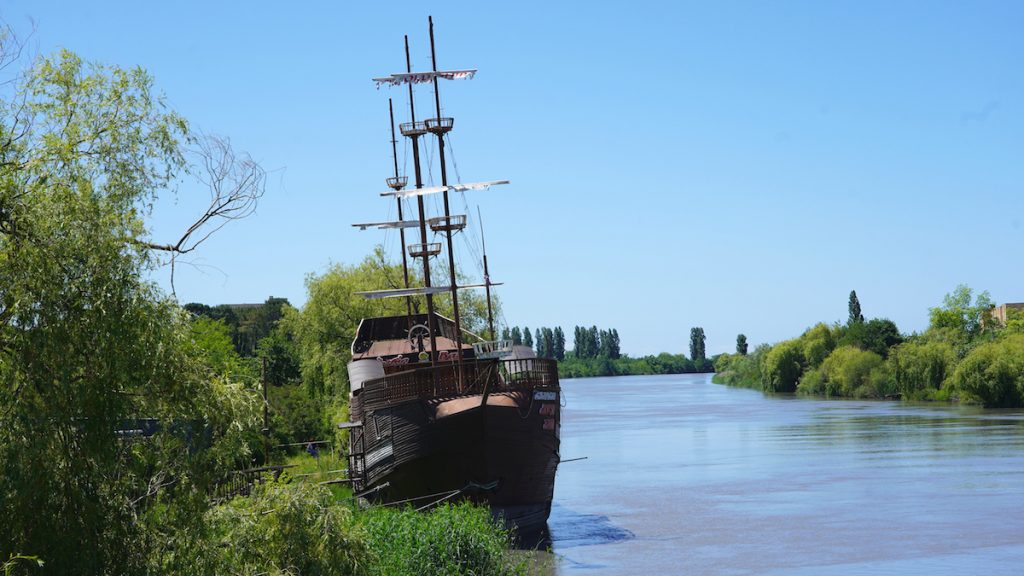
Residents say that the recreational zone of the city is practically undeveloped. For example, Maltakva is a suburb of Poti with magnetic sand and coniferous forest.
“The location of Poti, the sea, lakes, rivers, Kolkheti National Park, allows us to do a lot. Poti has the potential to develop water, hiking, and cultural tourism here”, says historian and researcher Silovan Gvasalia.
However, natural conditions alone are not enough for the development of modern tourism.
“The city needs infrastructure, bars, restaurants, entertainment. When a tourist arrives, they are not only interested in the sea and the river. Unfortunately, I do not see anything being done in this direction”, says former mayor Vakhtang Alania.
According to tourism experts, today in Poti there is not a single normal hotel where tourists could spend the night. The Maltakwa recreation area has had the problem of disorganized and polluted coastlines for many years.
Waste Detector, a nongovernmental organization that studies budget spending, found that the Poti municipality has allocated 18.5 million lari [about $ 5.8 million] for the development of the Maltakwa coastline. More than half of these funds – 10 million – have already been spent, although the coastline is still not in use.
According to the organization, the tender for the development of Maltakwa has been announced four times. The two different companies that won the tender the first two times received a total of over 6 million lari [about $1.9 million] for substandard and late work.
“After that, Poti announced two more tenders, one of which was won by the donor company of the ruling party, and the other – by ZM Group Ltd., which was supposed to complete the work four months earlier”, writes Detector.
The Poti City Hall told JAMnews that the government is actively working on tourism projects.
In particular, the Park of Culture and Leisure in Poti has been restored. In addition, a fishing infrastructure was organized on Lake Martotskala – a pier, as well as sheds and service centers for visitors and fishermen.
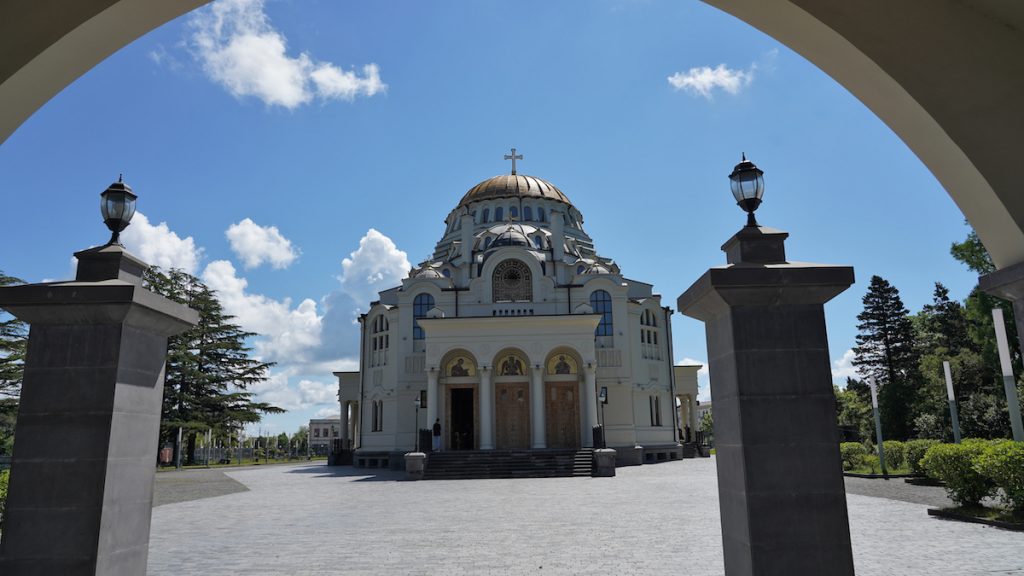
The enthusiasm of the city hall is not shared by the locals. Silovan Gvasalia says that Poti as a tourist zone exists only at the declaration level, and in fact, nothing is being done in this direction. Nothing is being done to attract investors either.
“Nothing has been done to build large hotels in Poti, for example, like in the neighboring resort of Anaklia. These hotels will then themselves develop the sector, small and medium-sized enterprises, and the service sector will develop. But it seems that the government does not have such a vision”, says Silovan Gvasalia.
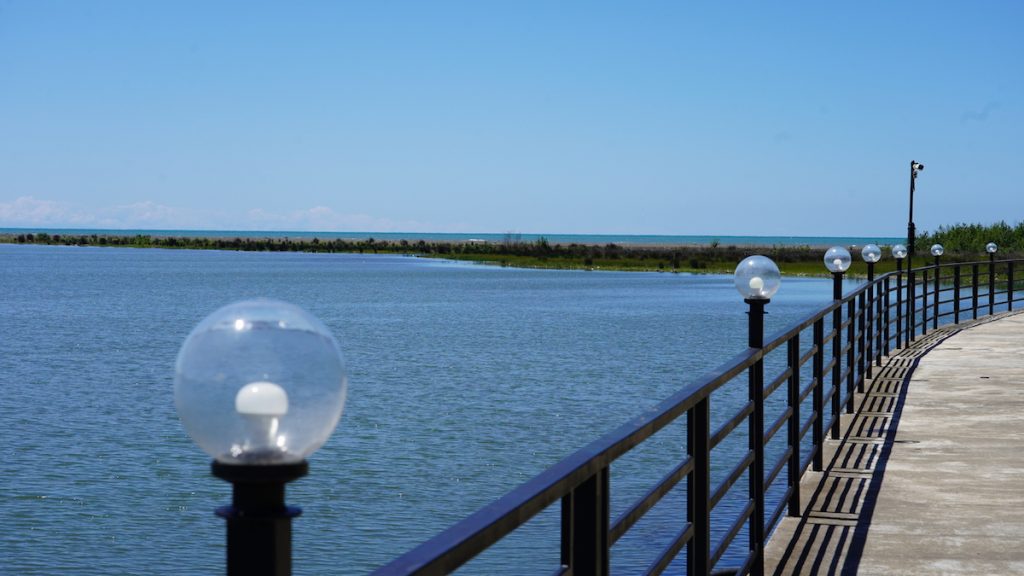
Problems that are not being solved
Since Poti has no money for its own development, it completely depends on what projects in the region are being developed in Tbilisi. There are many problems and almost none of them are being solved.
Ask any local resident what is the problem of the city and the very first answer will be the smell of fish.
For many months of the year, especially between November and February, during the anchovy fishing season, the inhabitants suffer from this smell.
It is so harsh that it burns the eyes, causing headaches, poisoning, and breathing problems.
“In fact, we cannot open the windows, in winter it smells like fish, in summer there is dust”, says local resident Lyuba Chalaya.
According to the Georgian Ministry of Environmental Protection, there are four fish processing enterprises operating in Poti.
Local residents say that the reason for this unbearable smell is non-compliance with sanitary rules at the enterprises – the lack of special filters to clean the air, dumping waste into the sea, rotting fish, and transportation by faulty trucks.
Residents of Poti have been fighting for years – holding protests, communicating with journalists. A special Facebook group has been created where people concerned about this issue express their opinions. However, so far everything is in vain.
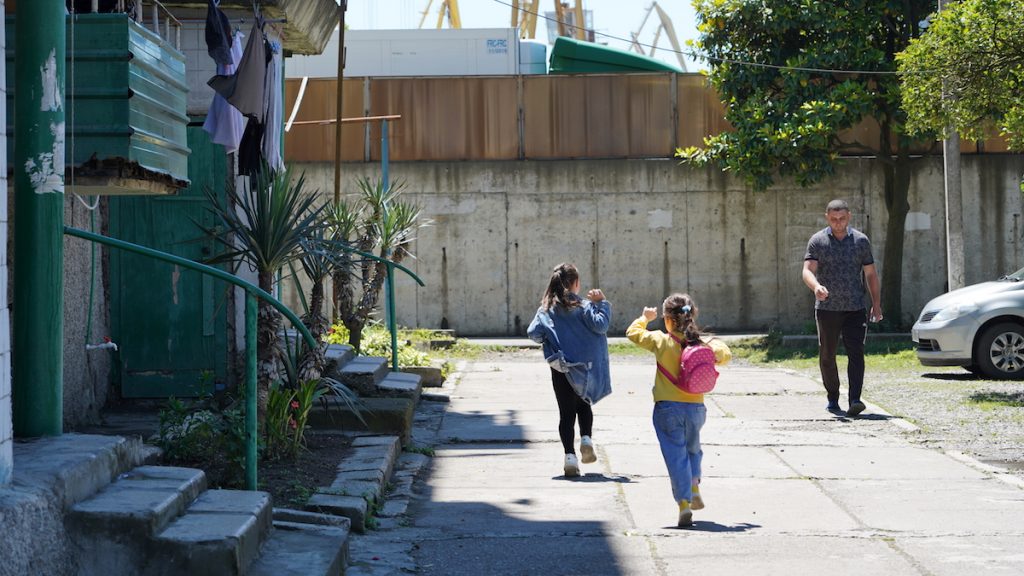
Transparency International Georgia reviewed the performance of Poti fish processing plants in 2018.
The study says that the shareholders of three of these four companies are donors and persons affiliated with the current and former ruling parties. These enterprises were repeatedly fined by the Department of Environmental Supervision for environmental pollution.
Not only the smell of fish threatens the life and health of Poti residents.
Over the past few years, people in the IDP settlement in Poti have been suffering from noise from trucks, exhaust fumes, and heavy metal processing.
Two streets of the village, Javakhishvili and Chavchavadze, border the industrial zone of Poti. From the upper floors of high-rise buildings on the territory of the terminal, you can see the accumulated cargo.
Yellow dust settles on balconies and windows from the terminal.
“Here we have cargo being unloaded and the situation is such that life is unbearable. We wash the floors in the morning and in the evening, and when you wring out the rag, black water flows down. In the morning there is terrible dust everywhere, I wipe it off, and in the evening it’s the same. Children touch everything with their hands, the baby puts everything in its mouth, our children have not been tested, perhaps they also have lead in their blood”, says local resident Anna Shukvani.
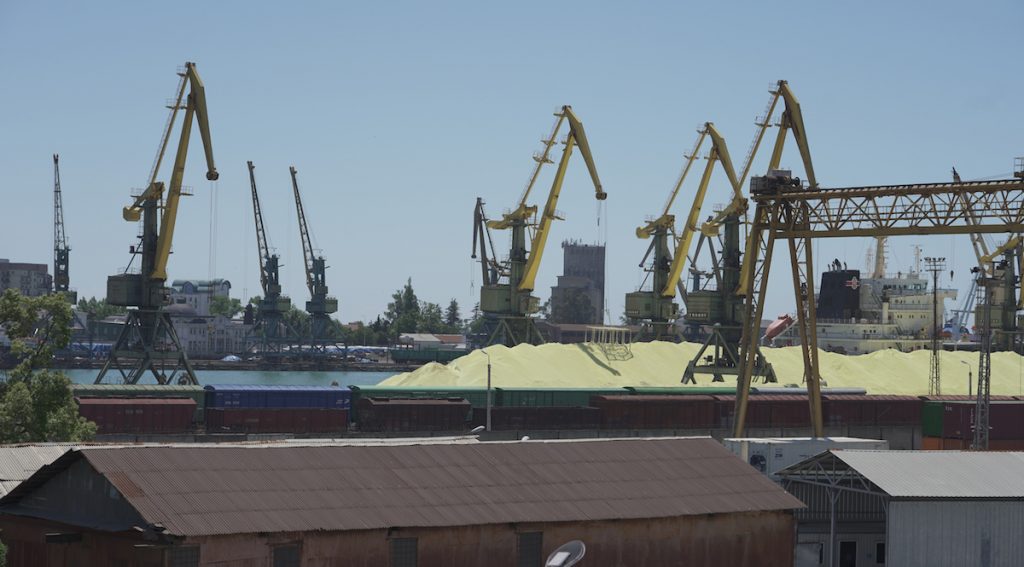
About 70 children live in this village, and most of them have high levels of lead in their blood.
The internally displaced persons ask the mayor’s office to relocate them to another area. The Poti Mayor’s Office explained that a commission on this issue has been created.
“There is a search for an investor who, if interested in the territory, will provide local residents with housing in another area”, the mayor’s office told us.
Among the main problems of the city is the disruption of the sewerage system, drainage canals and pumping stations, says journalist Eliso Janashia:
“Installation and repair of pumping stations in the city require at least 13-14 million lari [about $ 4.3 million]. This almost makes up the city’s annual budget. That is why not a single government was able to solve the problems of Poti”.
A constant infestation of mosquitoes is also associated with this problem – the city is often flooded, there is water in the canals and insects multiply.
“What is happening in Poti is a real robbery of the city”, says Irakli Melashvili. According to him, the center is trying to ensure that the municipality does not have its own income, and is always locked into the hands of the center – “this is how the system works”.
According to Eliso Janashia, the center’s priorities often do not match the needs of local residents:
“Every time it rains, Poti floods, gets paralyzed, cars float, the city dies, it is impossible to move around. But the Municipal Development Fund built a pool in Poti of about 16 million lari [about $ 5 million]. This pool has not yet been commissioned”, says Janashia.
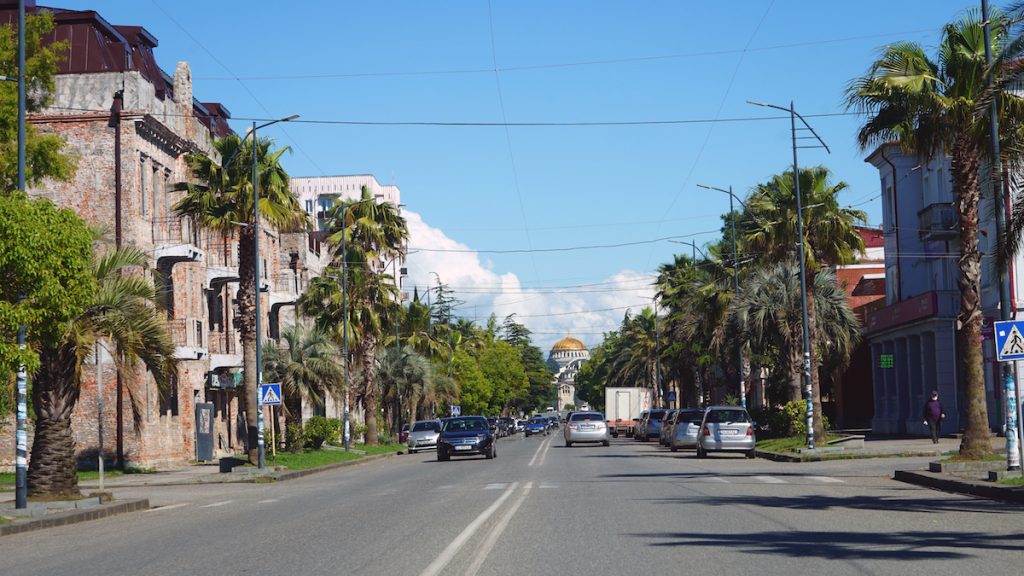
JAMnews applied to the Poti Mayor’s Office with a request to provide information on the planned infrastructure projects in the city. The list is quite extensive.
The Mayor’s Office informed us that in 2020-2021, infrastructure work was carried out at 135 facilities in Poti. These projects include the renovation of internal roads in Poti, the restoration of roofs of buildings, the renovation of kindergartens, and the restoration of sports grounds and institutions.
“We are preparing for the 2023 European Youth Football Championship and we will host this important sporting event with two new stadiums and related infrastructure, including the central stadium of Poti and the technical center of the Poti Football School of the Football Federation. A sports complex with a swimming pool will be put into operation in the near future”, Poti Mayor Gocha Kurdgelia wrote in his reply.
Is there hope for Poti?
“Social activism”, Eliso Janashia replies without hesitation when I ask her what will save her city.
Eliso says civil society is not active in Poti, but there have been some signs of it lately. For example, the Poti for Your Rights initiative group.
This group is only a few months old but has already run successful advocacy campaigns.
For example, at the initiative of this group, blood tests of children living near the port were carried out at the expense of the local budget. The budget for 2021 allocated 50,000 lari [about $ 16 thousand] for this.
For this amount, about 150 children will be tested for the content of copper, lead, cadmium, aluminum, and mercury in their blood.
The next step will be to allocate the necessary funds for the treatment of these children.
“Poti’s main problem is false self-government. The people who manage the budget don’t really make decisions”, says Eliso Janashia.
She believes that the city needs a mayor-owner who will not obey the center, but will be able to make bold decisions taking into account the interests of the local population:
“Like with the pumping stations. After consulting with experts and conducting a series of studies, we came to the conclusion that the city needs 20 pumping stations. Each will cost about 1 million lari [about $ 317 thousand]. With the money spent on the pool, 16 pumping stations could be built. If not all in one year, then a good government could draw up a program for at least four years to open four or five stations a year. But we don’t have that kind of power”.
Kote Kandelaki says there is no political will to decentralize because dependence on the center is a good control mechanism:
“Now we have been told that 500 million lari [about $160 million] will be allocated from the central budget for the development of the regions. If this amount is in the budget, then it could be given to municipalities from the very beginning, and they would decide what to do in their city and how. But this (centralized) approach cannot be abandoned by any government, the elites do not want to lose the levers of influence with which they control the entire country”.
According to Irakli Melashvili, the center needs obedient mayors and control over municipalities primarily because of the elections:
“If the collection of the property tax were not problematic, if other taxes remained with the municipality, then it would have its own income and would no longer depend on the center. Consequently, the center could no longer control the mayors of all municipalities, and then, if necessary, use their administrative resources, to succeed in the elections or achieve other political goals”.
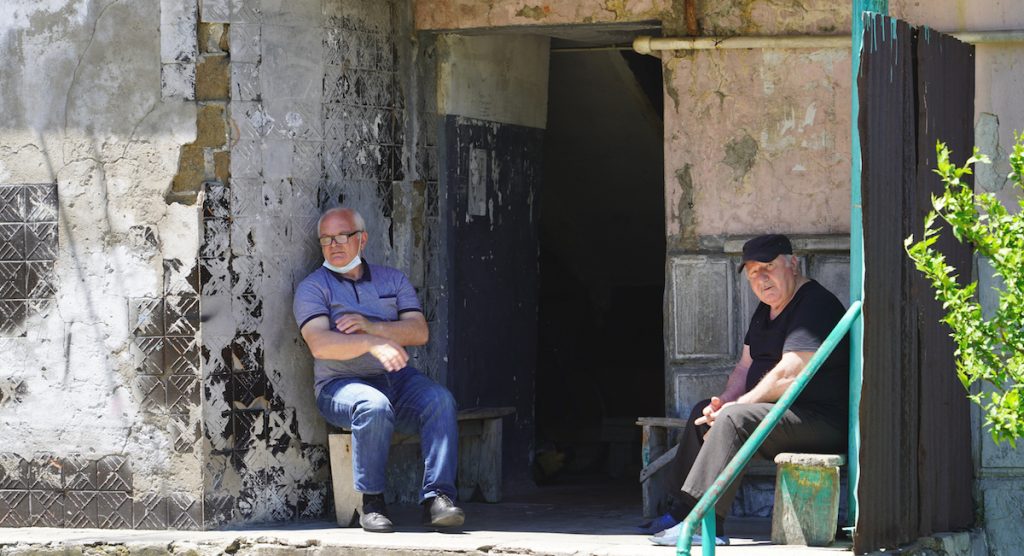
Kote Kandelaki says that if municipalities that spend more resources received more revenue, it would increase competition and encourage other municipalities to be more active in developing their economy.
The Poti City Hall told JAMnews that it has a plan, after the implementation of which “Poti will restore its special function related to its geopolitical position”.
The Mayor’s Office reports that a development plan for the Maltakwa district has been approved in order to use its tourism potential, which includes the construction of high-rise (up to 16 floors) hotels, sports complexes, eco-cottages, residential buildings, and holiday homes.
“We also note that two new ports are under construction in Poti. The total investment is over half a billion. As a result, up to a thousand jobs will be created”, the Poti mayor’s office writes.
Residents of Poti, who, for years, have been demanding the elimination of the fish odor and the repair of the sewerage system, do not believe in these grandiose plans.
“For so many years not a single hotel has been built in the city”, reminds Silovan Gvasalia.
People do not know what their city will be like in ten years. In their opinion, the authorities do not know this either.
Eliso Janashia has the same feeling.
“Poti is like a frozen frame: you don’t feel the dynamics here. The central government does not have a clear vision of the city’s development. However, if the country had real self-government, we, the residents, would work on the spot on this vision. We know what we need”.
Supported by RLNE


















